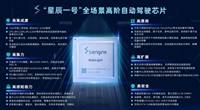| 是否无铅: | 含铅 | 是否Rohs认证: | 不符合 |
| 生命周期: | Obsolete | 零件包装代码: | CABGA |
| 包装说明: | 13 X 15 MM, 1 MM PITCH, FBGA-165 | 针数: | 165 |
| Reach Compliance Code: | not_compliant | ECCN代码: | 3A991 |
| HTS代码: | 8542.32.00.41 | 风险等级: | 5.91 |
| 最长访问时间: | 0.45 ns | 最大时钟频率 (fCLK): | 333 MHz |
| I/O 类型: | SEPARATE | JESD-30 代码: | R-PBGA-B165 |
| JESD-609代码: | e0 | 长度: | 15 mm |
| 内存密度: | 18874368 bit | 内存集成电路类型: | QDR SRAM |
| 内存宽度: | 36 | 湿度敏感等级: | 3 |
| 功能数量: | 1 | 端子数量: | 165 |
| 字数: | 524288 words | 字数代码: | 512000 |
| 工作模式: | SYNCHRONOUS | 最高工作温度: | 70 °C |
| 最低工作温度: | 组织: | 512KX36 | |
| 输出特性: | 3-STATE | 封装主体材料: | PLASTIC/EPOXY |
| 封装代码: | TBGA | 封装等效代码: | BGA165,11X15,40 |
| 封装形状: | RECTANGULAR | 封装形式: | GRID ARRAY, THIN PROFILE |
| 并行/串行: | PARALLEL | 峰值回流温度(摄氏度): | 225 |
| 电源: | 1.5/1.8,1.8 V | 认证状态: | Not Qualified |
| 座面最大高度: | 1.2 mm | 最小待机电流: | 1.7 V |
| 子类别: | SRAMs | 最大供电电压 (Vsup): | 1.9 V |
| 最小供电电压 (Vsup): | 1.7 V | 标称供电电压 (Vsup): | 1.8 V |
| 表面贴装: | YES | 技术: | CMOS |
| 温度等级: | COMMERCIAL | 端子面层: | TIN LEAD |
| 端子形式: | BALL | 端子节距: | 1 mm |
| 端子位置: | BOTTOM | 处于峰值回流温度下的最长时间: | 20 |
| 宽度: | 13 mm | Base Number Matches: | 1 |
| 型号 | 品牌 | 获取价格 | 描述 | 数据表 |
| 71P74804S167BQ | IDT |
获取价格 |
CABGA-165, Tray |

|
| 71P74804S167BQ8 | IDT |
获取价格 |
CABGA-165, Reel |

|
| 71P74804S167BQG | IDT |
获取价格 |
CABGA-165, Tray |

|
| 71P74804S167BQG8 | IDT |
获取价格 |
CABGA-165, Reel |

|
| 71P74804S200BQ | IDT |
获取价格 |
CABGA-165, Tray |

|
| 71P74804S200BQ8 | IDT |
获取价格 |
CABGA-165, Reel |

|
| 71P74804S200BQG | IDT |
获取价格 |
CABGA-165, Tray |

|
| 71P74804S200BQG8 | IDT |
获取价格 |
CABGA-165, Reel |

|
| 71P74804S250BQ | IDT |
获取价格 |
CABGA-165, Tray |

|
| 71P74804S250BQ8 | IDT |
获取价格 |
CABGA-165, Reel |

|
 英伟达新AI芯片Rubin或提前半年亮相
英伟达新AI芯片Rubin或提前半年亮相

 苹果iPhone 17将全系采用三星/LG显示LTPO OLED面板
苹果iPhone 17将全系采用三星/LG显示LTPO OLED面板

 三星深化印度制造布局,供应链本地化进程加速
三星深化印度制造布局,供应链本地化进程加速

 芯擎科技“星辰一号”自动驾驶芯片点亮成功,2025年量产在即
芯擎科技“星辰一号”自动驾驶芯片点亮成功,2025年量产在即
